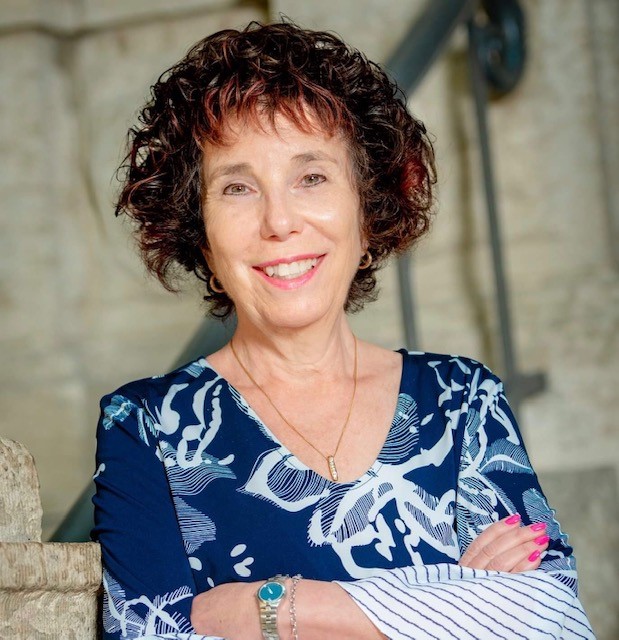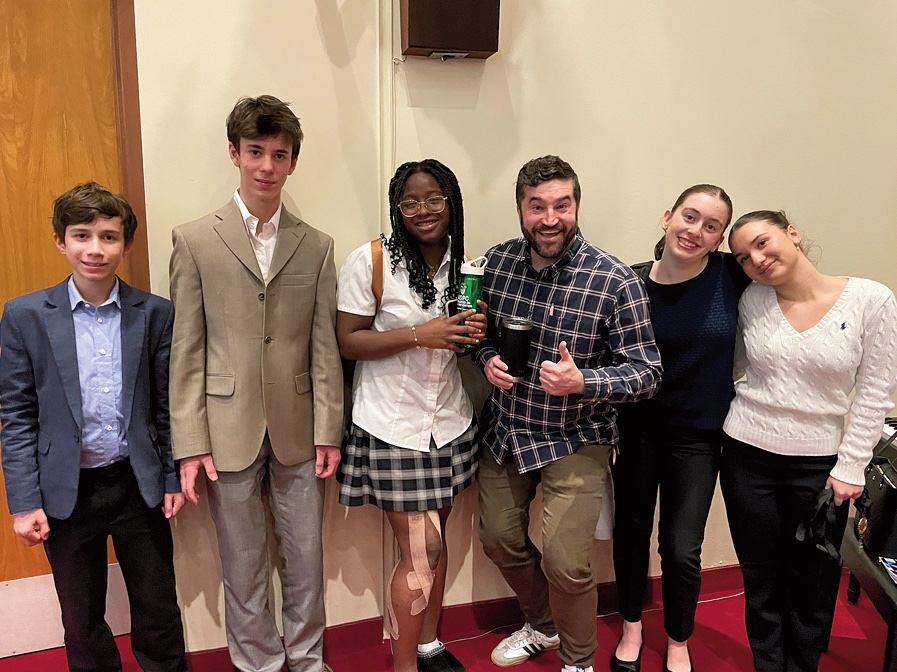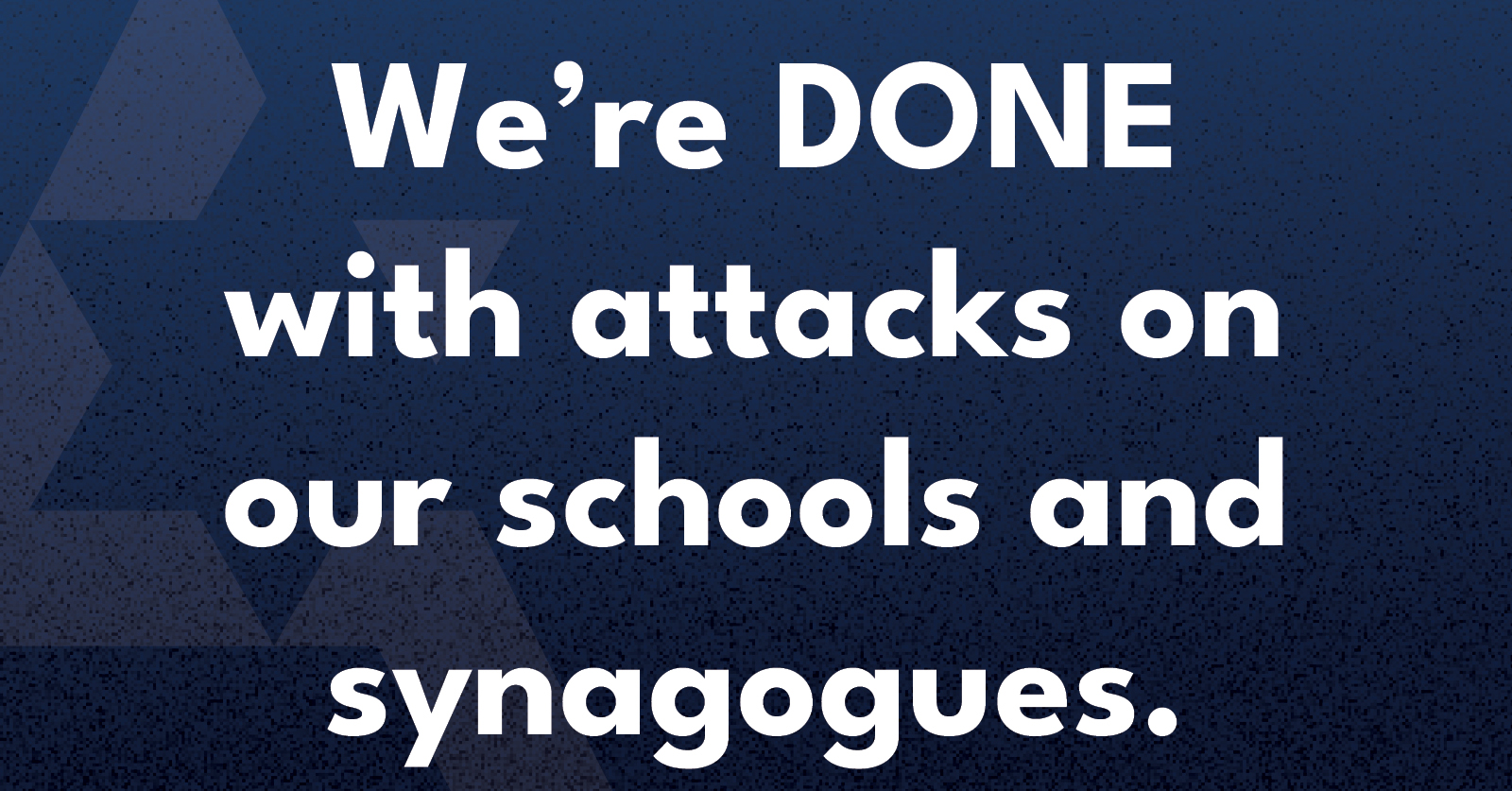Local News
St. John’s High School class of ’73 holds 5oth anniversary reunion

By MYRON LOVE St. John’s High School has a rich and storied history in the annals of our Jewish community. The North End institution is one of Winnipeg’s oldest schools and, when I was a student there in the mid-1960s, it was the city’s largest high school. For three generations of Jewish youth, the school was their gateway to success in the wider world.
In my student days there, the school’s student population was approximately 40% Jewish (although the real percentage may have been a little lower) – and while the school’s reputation as the “Jewish” high school was somewhat changed by the mid-60s, when that pride of place was becoming increasingly challenged by the still relatively new Garden City Collegiate and Grant Park High School in River Heights.
As the Jewish population continued to move either farther north into Garden City or south to River Heights, the numbers of Jewish students enrolled in the school continued to decline. Nonetheless, the 1973 graduating class still boasted about 20 Jewish students, most of whom were among the 70 former students who participated in the 50th anniversary reunion of that graduating class over the June 23-25 weekend.
The idea for the reunion originated with Ed Zwingerman. “I got the ball rolling in February of last year,” recalls the north Winnipeg physiotherapist. “I was at a retreat and, during a period of meditation, I got to thinking about all the changes in my life and all the friends from high school who I had lost touch with over the years. It occurred to me that a class reunion might be a nice way to reconnect with people.”
Zwingerman recruited fellow Class of ’73 graduate Donna Kormylo to co-chair a reunion committee.
“The response exceeded all of our expectations,” he reports. “We had good turnouts for all of our events.”
The weekend began on Friday afternoon with a meet-and-greet in the school library. The event included a slide show, refreshments and tours of the school led by current students. There was also time for the former students to share memories and pore over school memorabilia.
In the evening, the graduates gathered at the Four Crowns Restaurant in the former Lincoln Hotel on McPhillips Street to socialize informally.
Saturday afternoon featured a barbecue at Kildonan Park (with kosher hot dogs, Zwingerman points out). Then there was the grand finale – supper (including Jeanne’s Cake) at the legion hall on Henderson Highway and a band comprised of ’73 graduates(including musician Karen Dana and vocals by Richard Yaffe) featuring music from the ‘60s
“To that end, we were able to get a grant of $350 from the local city councillor,” Zwingerman says.

Among the Jewish former ’73 graduates who came to the reunion, according to Zwingerman. were the aforementioned Karen Dana and Richard Yaffe, Sam Steinfeld, Susan Israel and, from out of town, Sandra Kraitberg and Vicki Mowchun.
Susan Israel recalls that she didn’t remember a lot of people from high school outside of her own class. “I was always one of the band students,” she says. “We tended to stick together.”
One of the highlights for her at the reunion was reacquainting herself with Brian Burdy, her former Biology teacher. “I am not a science person,” she says. “Mr. Burdy made biology interesting for me.”
She also enjoyed the concert. She notes that she was unable to be part of the band because she was away at a family simchah and unable to practice with the other band members.
For Karen Dana, as well as seeing so many familiar faces, a highlight was being able to perform with Richard Yaffe and getting to know him again. “We grew up a block apart near the Talmud Torah and we used to walk to school together,” she recounts.
“And Susan and I go back a long way. Her aunt was my piano teacher.”
Both Dana and Zwingerman also commented on the number of former teachers who put in an appearance at the reunion. A number of the teachers at the school in ’60s and ‘70s were also Jewish.
Zwingerman was particularly happy to see former teacher Marty Billinkoff, who flew in from Vancouver. “Mr. Billinkoff was gregarious and personable and a lot of fun. It was great to see him again.”
The reunion co-organizer also expresses appreciation for the support from the St. John’s Alumni Committee and the school’s principal, Doug Taylor.
“Doug is a great leader,” Zwingerman notes. “A lot of the current students continue on to post-secondary institutions.”
He adds that the reunion committee has contributed leftover funds to the school to be divided between the band and football programs.
Local News
Cheryl Hirsch Katz, Jewish Child and Family Service’s longest serving staffer, set to retire at end of the month

By MYRON LOVE “I loved working at Jewish Child and Family Service,” says Cheryl Hirsh Katz, who is due to retire at the end of June. “I have always appreciated the warm and welcoming atmosphere here. I feel that the people working here are my extended family. I am going to miss my colleagues”.
“I have derived great satisfaction over the years to have been able to help many people in our community of all ages through my work at JCFS,” she continues.
After 44 years at the agency, Katz, the longest-serving member of the staff, was given an appreciative send-off at the JCFS’s recent (June 23) Annual General Meeting at the Shaarey Zedek Synagogue.
The daughter of Art and Bess Hirsh, Cheryl grew up in Garden City. She attended Peretz School, then Jefferson Junior High and Garden City Collegiate. She joined the staff of JCFS in 1981, shortly after receiving her Bachelor of Social Work degree.
She earned an MSW in 1990.
“I chose to become a social worker,” she recalls, “because I always wanted to be able to help people.”
Katz was originally hired by JCFS to work with newcomers. After a couple of years, she was given responsibility for looking after the needs of older adults.
“I really enjoyed working in older adult services,” she says. “That is where I spent the bulk of my time at JCFS.”
After ten years as a case worker, she was promoted to a supervisory role. Later, she was also given responsibility for mental health and addictions programming and settlement services, while keeping the older adult files under her purview.
“As a supervisor, I wasn’t directly involved with individual clients,” she points out. “I was more involved with programming. Among the programs for seniors we organized were – for example – sessions on elder abuse, digital storytelling and memory loss.”
She notes that one of the trends she has seen over the last 44 years is that people are living longer and living in their homes longer. A lot more of our clients are living well into their 90s,” she observes. “We have had to continually expand our staff and the services we provide in order to accommodate the growing demands of an aging population.”
She also spoke of the mental health needs of seniors and aging Holocaust survivors.
She says that she has mixed feelings about leaving JCFS. “After so many years working full time, I am going to have to create a new routine,” she comments.
She notes that, now that she is retired, she will have more time to spend with her parents – who are in their 90s.
And then, there are the two dogs to look after. “I will have time now to try new activities,” she says. “ I might learn to play mah-jong.”
She speaks about maybe doing some traveling – although her husband, Murray, is still working full time.
(She and Murray have one daughter, Farah.)
“Retirement may also include some volunteering,” she adds.
It is quite likely, she will be continuing her association with JCFS but in a volunteer capacity.
Local News
Gray Academy students shine in provincial, national debating competitions

By MYRON LOVE It has been another good year for Gray Academy’s high school students who participated in provincial and national debating competitions. The best results were recorded by Grade 9 student Noa Mednikov, who finished fourth overall nationally, fourth in interpretive reading, and fifth in persuasive speaking at the junior National Public Speaking Championship in early May in Vancouver.
Last October, in the Junior Provincial British Parliamentary Championship – which was held at St. John’s-Ravenscourt – Noa and her partner, Raya Braunstein, finished third as a team while Raya placed third in individual debating.
Their fellow Grade 9 student Maxim Moscalenkov tied for first in persuasive speaking in Vancouver, while the Gray Academy team of Gabe Tapper and Aaron Koplovich finished fifth. Aaron also finished fifth in his individual debate.
Earlier, in March, Maxim finished fifth in the Provincial Juniors debating competition, which was held at Balmoral Hall He and his debate partner, Nate Shenkarow, finished seventh among the teams entered. Last November, he and partner, Ethan Tenenbein, finished seventh in the Junior Prepared Tournament – just behind the Gray Academy team of Nate Shenkarow and Jack Kay.
At the senior high level in that competition, the team of Jacob Tenenbein and Jonah Novoseller finished fourth and Jacob was recognized as fifth best in an individual capacity. Jonah and Jacob also paired up to win the Asper Cup, which was held at their home school.
Jacob represented Manitoba at the Junior National Speech Championship in Vancouver in May and, last October, he and Grade 12 Gray Academy students Julie Krozkin and Daniel Bokser represented Canada at an international debating tournament in Bermuda.
Gray Academy’s debating program was introduced by Linda Martin in 2003. She also led the debating teams at Balmoral Hall. In 2011, Martin was succeeded by Gray Academy high school English teacher Andrew Kaplan.
“Andrew has done a wonderful job with the debating program” says Martin, who has a debating trophy at Gray Academy named in her honour, as well as a provincial trophy for best individual junior debater. “Over the years, Gray Academy students have done very well in many local, national and international competitions,” she adds.
About three weeks ago, this writer had the opportunity to sit down with Andrew Kaplan and six of the school’s top debaters while they discussed the benefits of learning how to debate. According to Noah Strauss – who competed in the Junior Provincials at Balmoral Hall in March, public speaking leaves him with a feeling of accomplishment.
“It’s a good skill set to have,” he observes. “It builds confidence.”
“A benefit of being able to debate is that you learn how to convince people that you know what you are talking about,” adds Maxim Moscolenkov.
Raya Braunstein notes that being able to debate is a skill that she expects to be helpful in many university courses which she may choose to take.
As Andrew Kaplan notes, the ability to express yourself has a great impact in whatever career you choose to pursue.
He points out that debating is compulsory at Gray Academy for all Grade 7 and 8 students – and students can continue debating as an option in the higher grades
Of course, competitive debating is not for everyone. For those students who opt to take that path, the journey begins with internal school debate competition – with the top debating teams and individuals qualifying for local tournaments and – potentially – beyond.
Andrew Kaplan reports that a small number of high schools in Winnipeg and southern Manitoba have active debating programs – including St. Johns Ravenscourt, St. Paul’s High School, St. Mary’s Academy, Garden City and Maples Collegiates in the Seven Oaks School Division, St. Maurice (a Catholic School), as well as Morden Collegiate and Dasmesh, a Sikh private school.
Kaplan expresses his appreciation to the Asper Foundation and an endowment spearheaded by the Kives Family for providing funding for the Gray Academy debating program – as well as the Andrew Slough Foundation – which was established by his friends in memory of the outstanding former Ravenscourt student debater and lawyer who passed away suddenly two years ago at the still young age of 38.
I am confident that our Jewish community can look forward to the continued success of Gray Academy’s star debaters and to the continual emergence of future stars as the times goes by.
Local News
Antisemitism has crept into grade school in Canada

Antisemitism in Canada has moved beyond protests and politics; it is now entering classrooms and altering how Jewish children see themselves functioning within them.
A a university student I have observed the experience of my younger brother in grade eight as a Jewish student. Over the past few months, his school has been at the center of several deeply troubling incidents that have made him feel unsafe in our parks, community, and even his school. Swastikas were drawn around the community, in parks and ponds. Additionally, an older man, who claims to be a pro-Palestinian influencer, stood outside his predominantly Jewish school wearing a keffiyeh, filming a video which then circulated between students on TikTok.
This same man later showed up to our local Jewish community center in keffiyeh to allegedly watch his son play basketball where my brother and many of his classmates go for their lessons, basketball games, and Jewish events. These moments made him and his peers feel watched and targeted just for being Jewish. Local political representatives condemned the incidents and raised awareness about antisemitism, but the fear among students didn’t go away. The feeling of being targeted for simply existing has been taught to my brother, something my parents had tried their hardest to escape from.
Most recently, my brother was chosen to represent his school at a regional science fair. When one of the judges arrived wearing a keffiyeh, he froze. For many, including my brother after the incidents he has faced, the keffiyeh represents a political message. But even more so for my younger brother, it is tied to the fear and intimidation he had already experienced. He felt nervous, distracted, and unsure of how to act.
This is not about silencing political expression. It is about a child who came to share his ideas and left feeling uncertain and afraid. It is about the atmosphere forming in Canadian schools, where Jewish students are being made to feel targeted and unwelcome.
His school made an effort to address the incidents, but the impact is lasting. Posts on social media, much can be very vague at times about inclusion cannot fully undo the feeling of being singled out. A kind word from a teacher does not erase the fear that builds when threats are left unspoken but deeply felt.
I am writing this as a sister who watched her younger brother lose a moment that should have been filled with confidence and pride. He deserved to feel safe. So do all Jewish students in this country.
Moving forward, schools must take concrete steps to protect all students. Antisemitism cannot only be addressed when it becomes violent or overt. It must also be recognized when it appears as intimidation, symbolic targeting, or political messaging that creates fear among students. Children should never have to question whether they are safe in their own classrooms or community spaces.
Events that are meant to support and celebrate students must remain focused on them. Individuals who feel the need to bring political symbols or messages into school grounds or children’s events should not be welcomed in those spaces. Schools must make it clear that their environments exist to support learning, safety, and inclusion, not to host agendas that can intimidate or isolate students.
Administrators and educators must develop clear guidelines for identifying and responding to antisemitic behavior in all its forms. This includes strengthening security measures, offering ongoing staff training, and engaging directly with Jewish families to understand their concerns. Inclusion is not a one-time statement. It is a responsibility that must be reflected in everyday decisions and actions. No child should ever feel unsafe or unwelcome because of their identity.
The author is a Campus Media Fellow with HonestReporting Canada and Allied Voices for Israel who lives in Toronto.
